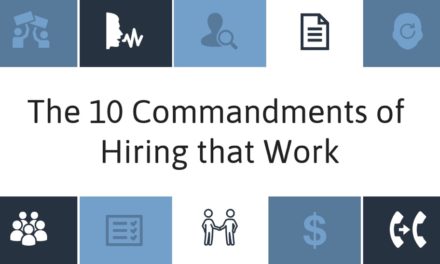For many leaders, the pandemic has been a trial by fire. New challenges have put the strengths and weaknesses of their leadership style under the spotlight. It’s no secret that the working world has changed drastically in the last year and a half. The pandemic has forced leaders and employees to adapt to new ways of working, often stepping outside of their comfort zone.
For better or worse, a lot of the changes are here to stay. What started for many as two weeks out of the office turned into a completely virtual work environment. Now, with offices reopening, leaders at all levels will need to adapt to a new hybrid workplace model.
To thrive in the future, leaders need to face new challenges head-on. To do that, they will need support. As businesses recover, leadership development needs to be prioritized. Leadership assessments are one of the most valuable tools in the development toolbox. Companies will need to rethink what they are assessing and explore new ways to build up their leaders for success. Here are five traits you should consider when assessing leaders in the post-pandemic world.
- Focus on Empathy
Empathetic leadership is more important than ever. Leaders who are focused on supporting and empathizing with their employees can form better connections and understand the needs of their team. This means they are more likely to have engaged teams, making it easier to retain talent.
The pandemic had a huge impact on workplaces around the globe. We are now seeing a turnover tsunami. Part of the reason for this is employee burnout. Uncertainty, transitioning to new ways of working, and changing expectations all factor into burnout. Proactive, empathetic leadership can make all the difference in ensuring that employees want to stay with your company. When assessing leadership, measure emotional intelligence. Look at their ability to listen actively, understand employee needs and engage in an empathetic way.
- Adaptability and Flexibility Are Vital
The way we work has changed and leaders need to be able to adapt quickly. The sudden move to remote work was jarring for many organizations. This is especially true for companies with a strong in-office culture.
A lot of the changes came with new technology as many companies’ digital transformation strategies kicked into high-gear last year. The ability to adapt to new technologies is important, but it’s only one piece of the puzzle. Leaders also need to adapt and be flexible with the needs of their employees.
As of December 2020, 71 percent of employees that could do their jobs remotely were choosing to work from home. More than half of those employees would like to continue to work from home post-pandemic. As more workplaces move to a hybrid model, leaders need to balance the needs of employees with performance. There is no one size fits all solution here. Evaluate leaders and potential leaders for their ability to navigate change. Assess whether employees feel empowered to do their work in the way that makes them most successful.
- Developing Trust
When planning leadership development, measuring employee trust in leadership is a key metric for success. Leaders and employees both thrive in high-trust environments. Employees need to know that leadership has their back. Leaders need to know that their employees are doing great work and driving results.
During the pandemic, leaders likely struggled with trust during the shift to remote work. In many cases, that trust was rewarded as productivity increased by 47 percent in 2020, per a report by Prodoscore. As a leadership trait, trust is critical to employees feeling empowered and being able to do their best work.
- Identify Potential for Success
It’s important to know what your company needs and who is best suited to meet those needs. Knowing who can successfully lead in your company and setting them up for success is crucial. When succession planning, companies need to evaluate who will drive the company culture. They also need to determine who has potential to lead at a higher level.
Tools like a 9-box performance matrix are useful when assessing candidates for leadership positions. Often, you’ll need to determine who does their best work as an individual contributor, and who can be further developed. Know what works in your company and give your best candidates the coaching, tools and training to be even better.
- Less Reactive, More Proactive
The pandemic put a lot of organizations on their back foot. Nobody knew what to expect, or how long the pandemic would last. Many businesses had to react quickly to keep everything running. Collectively, we all learned the value of thinking pragmatically and proactively.
Leadership assessment, development, and succession planning need to be proactive. It’s no longer about what and who you need right now, today. Businesses need to evaluate how their priorities are shifting and who can help them meet their goals in years to come. When looking at leadership candidates and evaluating current leaders, determine if they are forward thinkers. Find out if their vision of the future matches the business’s long-term outlook.
I led the development of new succession planning and leadership development procedures last year at the start of the pandemic that really helped guide our company through the worst of it. Being able to assess our leaders’ strengths and weaknesses helped us fill in the gaps and made the transition to remote work less painful and more productive.
We learned that building a sustainable leadership group will get your company through trying times. We were able to find comfort in the uncomfortable by focusing on building the traits that drive our culture. As a result, we ended up with stronger leaders, more engaged employees, and increased productivity. It’s hard to beat that!
Latest posts by Julie Salomone (see all)
- 5 Traits To Consider When Assessing Leaders - December 21, 2022













